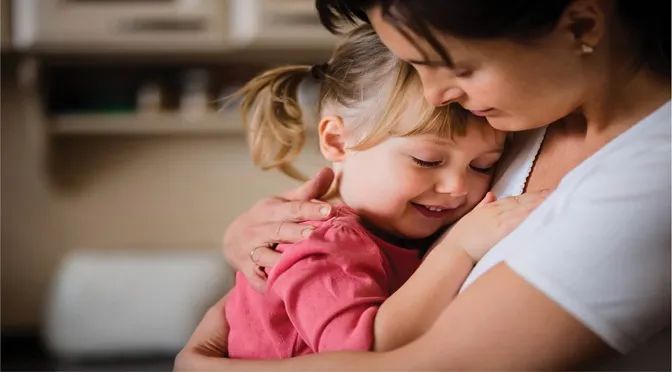
3 ways to teach consent to your preschooler
Originally printed in the pages of Simply Family Magazine’s February 2018 issue.Never miss an issue, check out SFM’s digital editions, here!
By Beth HooverFebruary is Teen Dating Violence Awareness Month. Statistics nationwide are disheartening. According to RAINN (the Rape, Abuse, & Incest National Network), 63,000 children are the victims of sexual abuse every year. Rape, attempted rape, and sexual assault are four times more likely to happen to a teenage girl than at any other age in her lifetime.
Every parent wants to save their child from the nightmare of sexual assault, but there’s some concern about how early is too early to talk with kids about consent.
There are ways to start teaching your children about consent when they are pre-school age without talking to them directly about sex. Using these suggestions can help you lay the groundwork for future conversations. By the time your child is a tween or teen, consent will be second nature to them so talking about it will be easier for both of you.
-
Your child’s desires and opinions about their body matter.
Even if grandparents, or aunts, or best friends, or mommy want a hug, if a child doesn't want to hug them, they have a choice. They can say no. Their desires and opinions about what to do with their body matter.
To make it easier, consider giving your child a concrete choice. For example, lots of consent articles suggest asking out loud if your child wants to give a high five or a hug. That way, they can still choose to high-five grandma and not hurt her feelings.
If you run into someone who is insistent about giving your child a hug when your child doesn’t want to, stand up for your child. Explain politely but firmly to the person that your child gets to choose what they do with their own body.
Bonus suggestion: Teach your child anatomically correct names for body parts.
Teaching anatomically correct names for body parts has been shown to help kids not feel ashamed of their body. Law enforcement studies suggest that knowing the correct names can also help children feel more comfortable talking to a trusted adult if someone does something to them without their consent.
Teaching our kids the correct names can help to reinforce that everyone’s body should be respected. No one should be able to make them feel like their body is not their own and that they don’t have choices.
-
Everybody can say no.
Just like your child can say no to touching or being touched, it’s important to remind them that everybody else has that right, too. Friends should listen to your child when he or she says no. And your child should listen to a friend when they say no. It goes both ways.
It might not be fun to hear someone else tell you no, but it’s always important to listen to them and to stop. We don’t want to hurt someone else by not stopping when they ask us to.
-
There are ways to say no without words.
If someone uses their words to tell us no, we need to respect it and stop what we are doing – whether that’s tickling them, hugging them, or whatever. If someone doesn’t use their words, but they do things like try to squirm away from us, frown, or freeze, we still need to recognize that they are asking us to stop. Instead of words, they're using body language. And that's a language that we need to listen to.
You can build your child’s social skills and empathy by helping them to pay attention to other people’s body language and respect it.
Consent in its most basic form is asking permission to cross another person’s boundary. Every time you teach your child about asking for permission, you’re laying the groundwork to have talks in the future about healthy relationships. Eventually, your talks can include the specifics about sex and consent. There’s more to be covered than these three basic building blocks. But, these are a start.
Wouldn’t it be nice to make those statistics listed at the beginning of this article shrink and disappear altogether? Together, we can. The more parents who teach their children how to treat each other well at young ages, the more hope we have of ending sexual violence.
http://billingsgazette.com/feature/of-the-reported-rapes-in-none-were-charged/article_1bba9112-0b42-11e7-913f-c376b5cc4c0c.html
about the author...Beth is a Violence Prevention Trainer for Power Up, Speak Out! In Red Lodge, Montana. To learn more about Power Up, Speak Out! and how to teach your children about healthy relationships, check out their blog at https://powerupspeakout.org/blog/.
